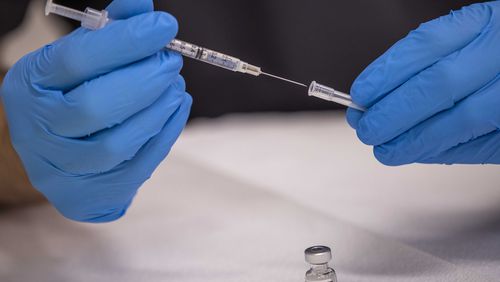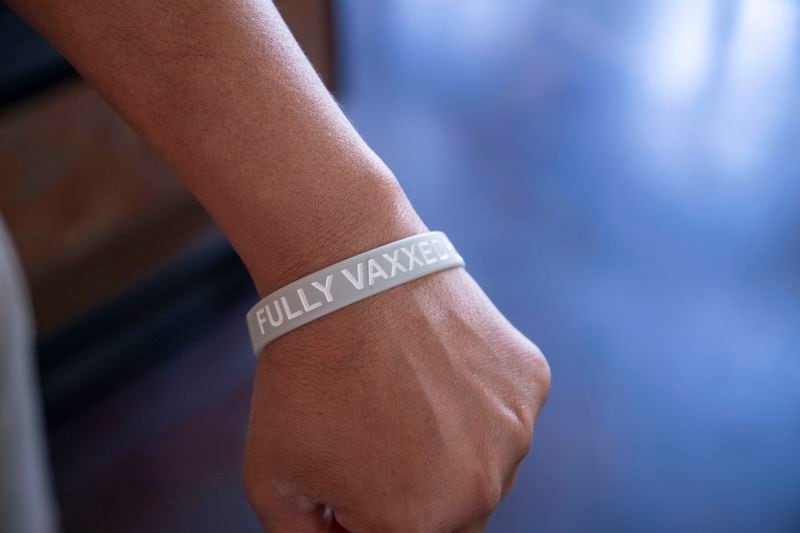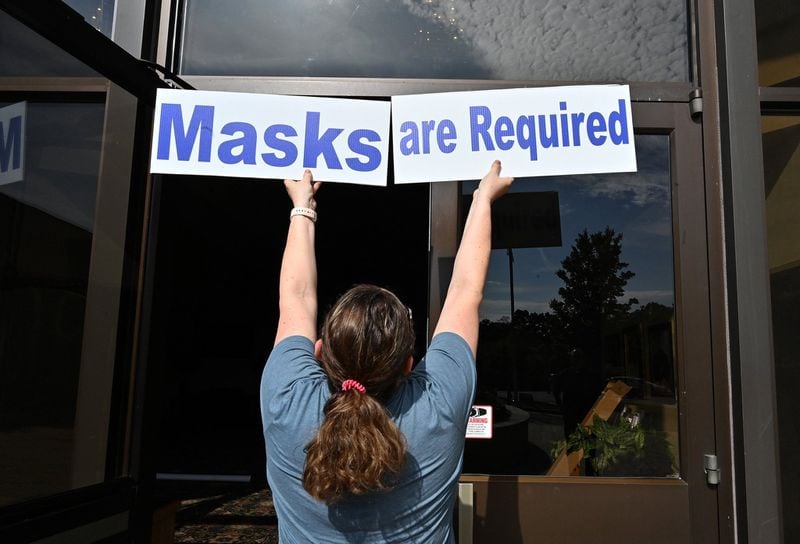The number of employers requiring workers to get vaccinated is growing across the nation.
Add to that at least one Georgia church.
The 107-year-old Greater Piney Grove Baptist Church in DeKalb now requires worshippers to show proof of full vaccination, take a temperature check and sign a waiver before they are allowed to attend in-person services. They also must register in advance to attend.
The Glenwood Avenue church, which has about 3,000 members started asking for proof of vaccination several weeks ago, even before the rise of the delta variant, said the Rev. William E. Flippin Sr., senior pastor.
He’s worried about people who are unvaccinated getting sick and also spreading the virus to others.
“It concerns me greatly,” said Flippin, who is fully vaccinated. “There are too many young people who won’t get the vaccine. The health of our congregation is the most critical.”
Credit: Alyssa Pointer
Credit: Alyssa Pointer
People only have to show proof of vaccination once. After that, the information is stored in a computer file.
The church has a team that meets regularly to review safety protocols and get updates on the trajectory of the virus and variants. In addition to the above requirements, just 200 people are allowed in the church for Sunday service. They are socially distanced and must wear masks.
If you don’t want to comply, said Miranda Mack McKenzie, the public relations manager, people can still watch services on Facebook, YouTube and streaming services.
Reservations for Sunday in-person services open online on Monday mornings and are typically filled by afternoon, McKenzie said. The church has asked members to rotate their reservations to allow different people to attend each Sunday.
Flippin said he had to recently release employees who refused to get vaccinated. They cited either religious reservations or health concerns. A letter from a doctor is required for medical exemptions to the church’s vaccine mandate, Flippin said.
Greater Piney Grove has been one of DeKalb County’s primary COVID-19 testing sites.
Flippin said he has been contacted about the church possibly being a vaccination site. If cases continue to rise, “we will have to pull back, even what we’re doing,” he said.
The Centers for Disease Control and Prevention has recommended that people, even if vaccinated, wear masks in indoor public places in high transmission areas.
Greater Piney Grove is not the only church taking a stand on the vaccine, and houses of worship are just as divided over COVID protocols as the rest of nation.
Pastor Greg Locke of Global Vision Bible Church in Mount Juliet, Tennessee told members that if they wore a mask in church he would show them the door.
“If they go through round two and you start showing up (with) all these masks and all this nonsense, I will ask you to leave,” Locke said during a recent service, according to news reports. “I will ask you to leave. I am not playing these Democrat games up in this church.”
In their response to COVID, churches walk a fine line, said L. Edward Phillips, an associate professor at Emory University’s Candler School of Theology. He is also the co-convener of the Ecumenical Consultation on Protocols for Worship, Fellowship and Sacrament to provide recommendations for safe practices for churches during the pandemic
“We tend to be open communities,” Phillips said. “We don’t want to exclude people from our congregations. We want people to come to our churches. We don’t even require you to be a Christian to attend.”
Instead, churches should be “flexible and forgiving” in this public health crisis so as not to be judgmental or discourage people from attending, but central to that is following CDC guidance.
“The delta variant part of the pandemic was not anticipated a year ago,” he said.
About the Author









